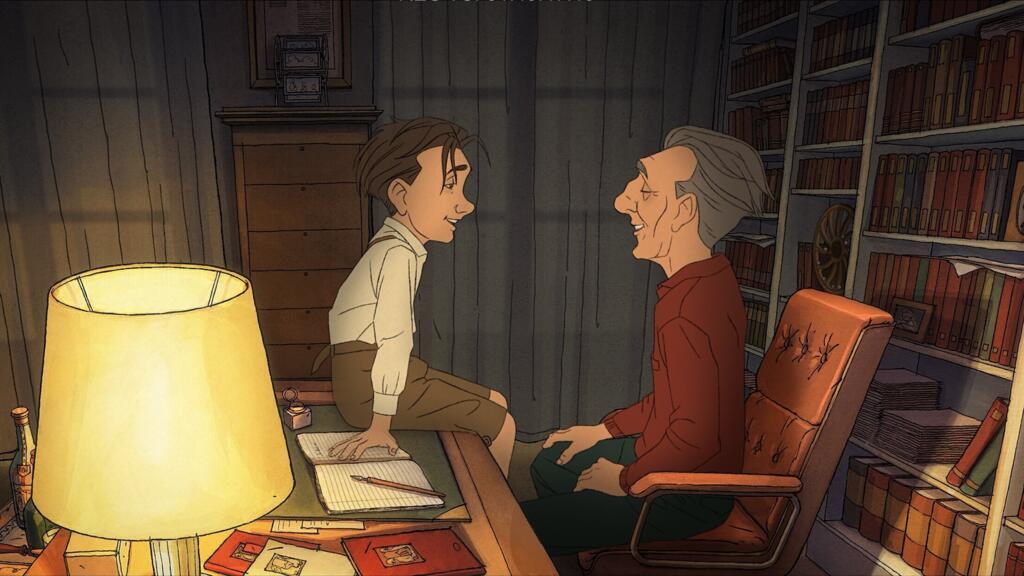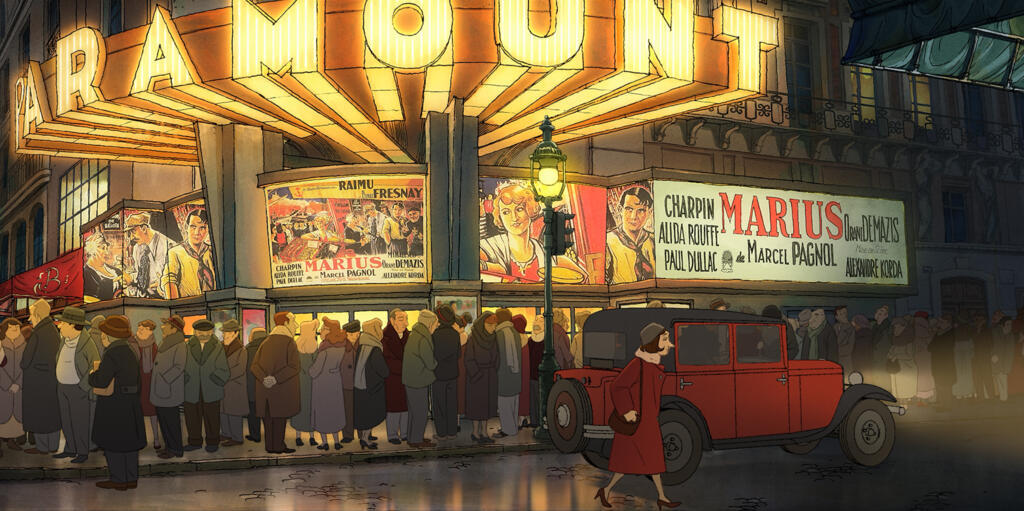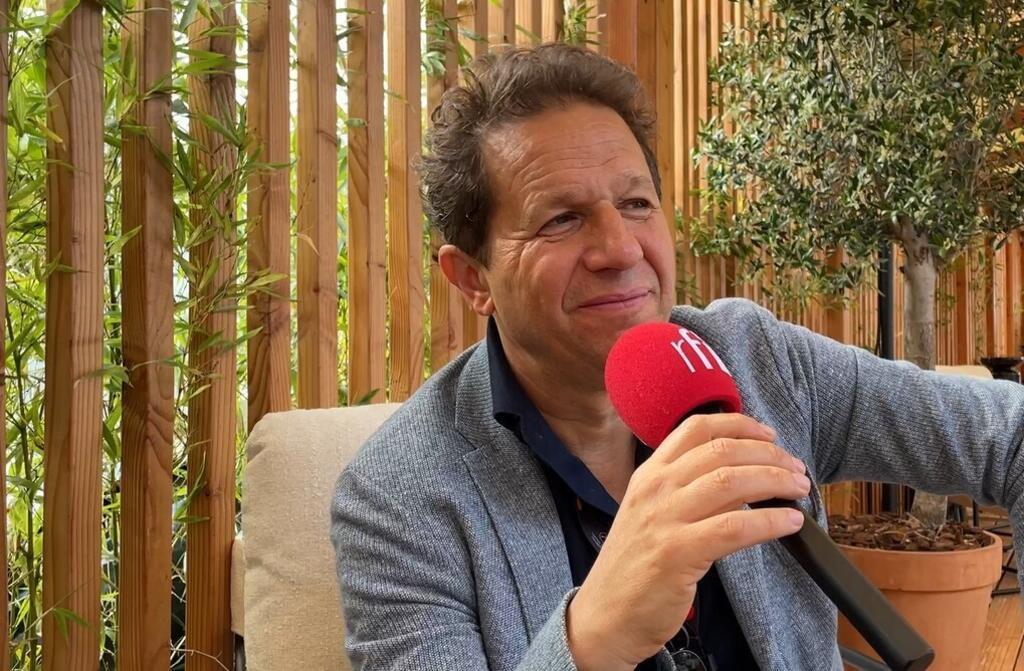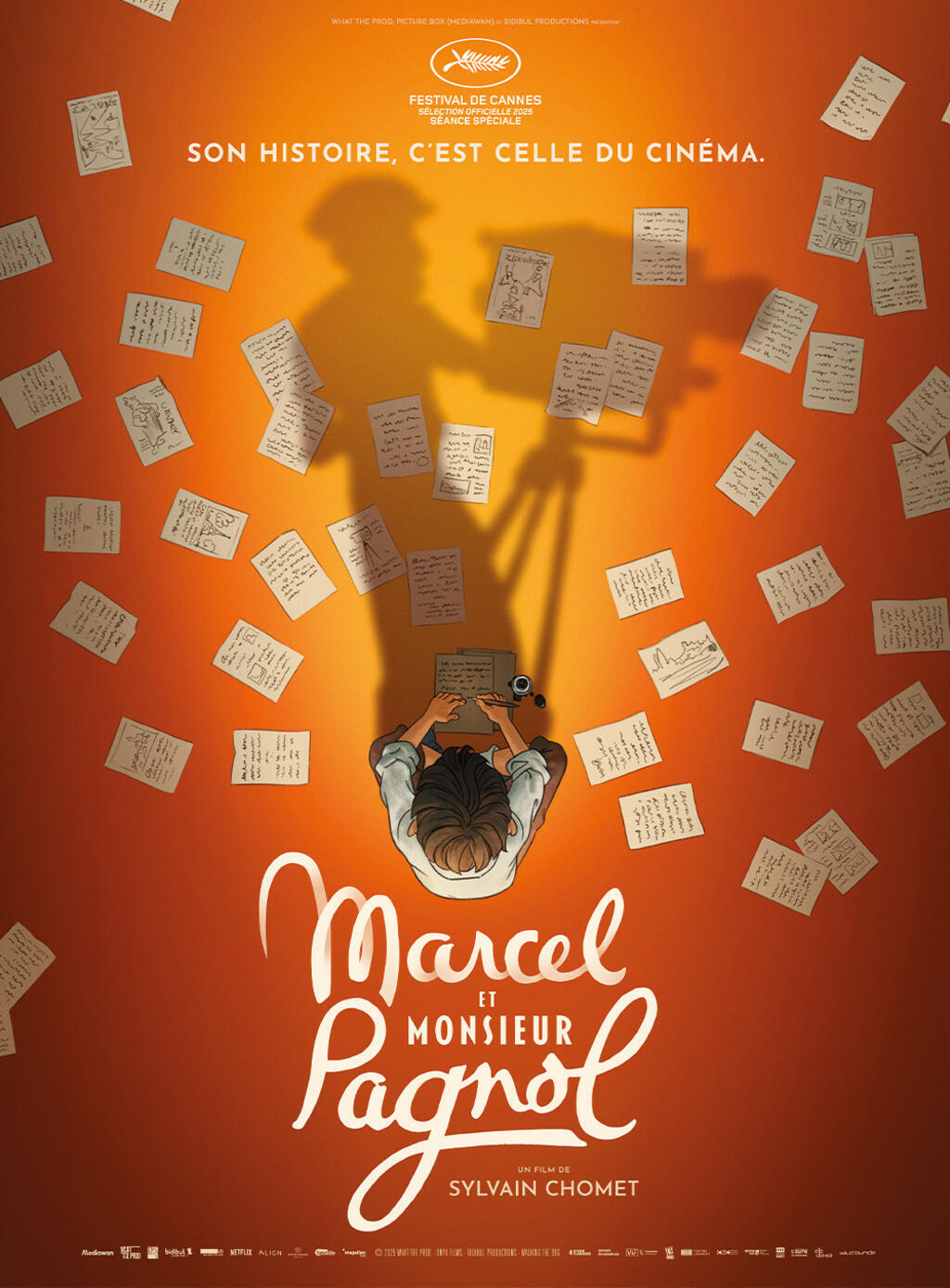
French playwright and filmmaker Marcel Pagnol’s prolific career is brought to life in the animated biopic A Magnificent Life. Hand drawn by director Sylvain Chomet, the film shows how embracing technology can be the key to telling a story.
Released in French cinemas on Wednesday, Marcel et Monsieur Pagnol (A Magnificent Life) is the joyful tale of a French icon and his towering contribution to the arts. It was directed by Sylvain Chomet, the French animation artist behind international hits including The Triplets of Belleville and The Illusionist.
Aton Soumache, one of the film's producers, called it “a tribute to creativity and to cinema" and insists it doesn't matter whether audience were already familiar with Pagnol's works, saying: "He lived an amazing life."
Born in 1895, the year the Lumière Brothers produced the first moving picture, Pagnol was a teacher, novelist, playwright and pioneer filmmaker.
Despite hitting the big time in Paris in the 1920s and 30s, Pagnol's loyalty remained with his southern roots, and with his family and close friends who followed him throughout his career. He included local actors to keep the authenticity of the accents and also opened his own studio in Marseille.
Although he admired American prowess, Pagnol remained deeply loyal to his homeland and even founded an organisation to protect French cinema, which later became the National Centre for Cinema (CNC).
Postcard from Cannes #3: Surfing a wave of French cinematic nostalgia

Taking risks
He embraced technology and invention but focused on telling stories. With each invention, he set out to make his mark, always taking risks – a story echoed in the making of A Magnificent Life itself.
“I think the best cinematic propositions are those where we take risks. So sometimes it works, sometimes it doesn't. But in any case, we have the feeling of doing something different,” Soumache told RFI.
Making a feature-length biopic in animated form was ambitious, Soumache says. It took a budget of €15 million and almost eight years from its conception to its premiere in Cannes in May 2025.

Filmmaker Guillermo del Toro backs stop-motion animation studio in Paris
Soumache calls the film “a mirror of our own times”, in terms of its use of new technology, be it digital tools, artificial intelligence or streaming platforms.
He believes artists need to take these things in their stride and find a way to keep telling stories, just like Pagnol did in his day.
Pagnol, who died in 1974, was greatly influenced by the major technological advances of his time and his career was forever changed by the moving picture.
Witnessing a film with dialogue for the first time in London in 1929 – he was delighted as he had never been a fan of silent movies. He went about adapting his popular theatre pieces to film, including Topaze, Marius and Fanny and became the first French director to use dialogue in films.
He also experimented with colour, and with shooting scenes outdoors as well as in a studio.
“It’s a film about resilience, about how Marcel Pagnol kept reinventing himself," he said. "At 63, having never written a book, he became a member of the French Academy and the great novelist we now know, though he had mostly been a playwright and filmmaker. He lived 10 lives, and we show seven or eight in the film."
'A universal language'
Pagnol’s grandson Nicolas gave Chomet complete creative freedom to interpret the life of a national treasure, whose voice is poignantly performed by Laurent Lafitte.
Animation, Soumache says, brings a touch of magic to telling Pagnol’s story, while respecting the real-life elements.
“Animation is a universal language” he said, adding that it also made it easier to bring Pagnol and his entourage to life, rather than trying to find actors who look the part.
Chaplin’s 'The Gold Rush' shines at 100 years old

For Nicolas Pagnol, the finished product is proof that the themes of his grandfather's work are timeless. “They can speak to everyone, in every era, like Molière."
He added: “We thought it would be released for the 50th anniversary of his death, in 2024. But I prefer that it comes out for the 130th anniversary of his birth because this film is a rebirth for Marcel."







